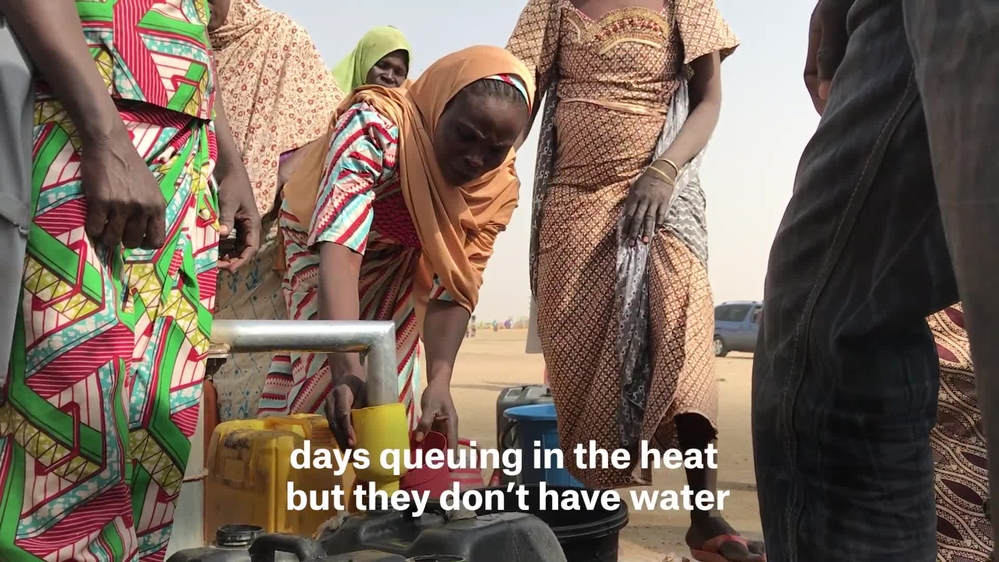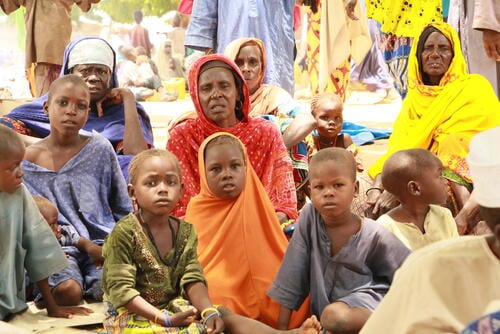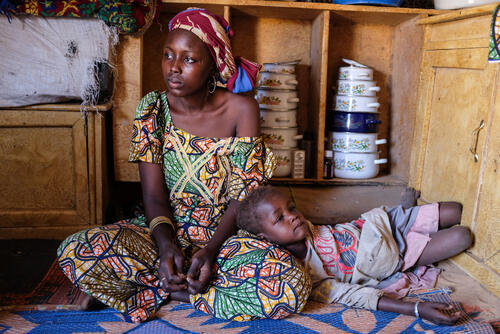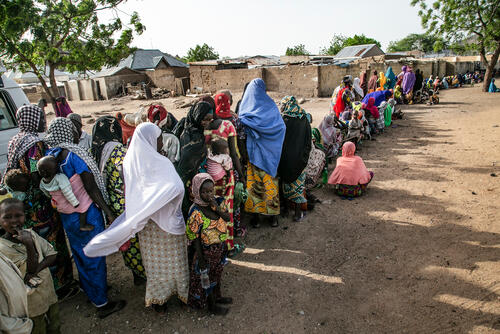Amidst the conflict in Pulka, north-east Nigeria, displaced people struggle to access basic amenities like safe water.

The water situation in Pulka
Hauwa is determined. She will not go home − a makeshift tent − with an empty jerry can. She has to cook, bathe and feed her family. Nothing is possible if she cannot fill her jerry can today.
Hauwa, like others in the camp for internally displaced people (IDPs) in Pulka, Borno state, north-east Nigeria, is struggling to cope with an acute water shortage. Long queues of bright yellow and orange water containers surround the numerous water points in the Pulka camps which continue to receive people fleeing conflict. Crowds, mostly women, jostle to get their mugs under the mouths of the hand pumps. Bits of cut-out plastic bottle have been shaped into funnels for jerry cans and other narrow top containers. Every inch gained in the melee counts; every drop in the bucket increases the chance of survival in the excruciating dry heat.
International standards for humanitarian aid recommend that people have access to between 15 and 20 litres of water every day in emergency conditions. For IDPs in Pulka, this is a distant dream.
“It is difficult to get even a container of water; sometimes we have to wait all day without getting any. We have to beg our neighbours,” says Hauwa. Displaced people like her are almost completely dependent on humanitarian assistance for survival.
Community members have come together to dig wells. Men are hard at work dredging soil elsewhere in the camp. Nearby, a young boy is collecting brown, muddy water from a puddle formed by thin streams flowing from newly dug wells. Nothing goes to waste in Pulka, there is not enough to waste. The population of Pulka tripled from less than 20,000 before the conflict in April 2014 to an estimated 65,000 residents at present.
The lack of sufficient water, both for drinking and personal hygiene, has resulted in medical issues like skin diseases and outbreaks of water-borne diseases. Between February and March 2018, MSF recorded a 45 percent increase in incidences of acute watery diarrhoea in Pulka.
“The struggle for water in the camps also increases tensions between the host community and the displaced populations. Women venturing outside the security perimeter of the camp to fetch water and firewood risk sexual exploitation, and being abducted or killed by armed groups,” says Luis Eguiluz, MSF’s head of mission in Nigeria.
As an emergency measure, humanitarian organisations began transporting water to the worst affected areas. But meeting the basic standards needed in order to pursue a safe and dignified life remain out of reach. In Pulka, 5,000 IDPs are living in makeshift tents in the transit camp. Improving access to water and sanitation must be coupled with proper access to shelter.






